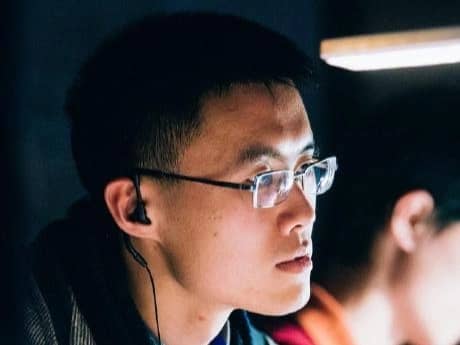Subscribe to wiki
Share wiki
Bookmark
Chenxi Liu
The Agent Tokenization Platform (ATP):Build autonomous agents with the Agent Development Kit (ADK)
0%
Chenxi Liu
Chenxi Liu is a research scientist specializing in artificial intelligence, computer vision, and deep learning. He is a member of Meta's Superintelligence Labs and previously worked at Google DeepMind, where he was a core contributor to the Gemini family of multimodal models. [1] [2]
Education
Liu completed his undergraduate studies at Tsinghua University, where he earned a bachelor's degree in automation. He continued his education in the United States, obtaining a master's degree in statistics from the University of California, Los Angeles (UCLA). Liu then pursued his doctoral studies at Johns Hopkins University, where he was advised by Bloomberg Distinguished Professor Alan Yuille. He graduated with a Doctor of Philosophy (PhD) in computer science, with his research focusing on computer vision and deep learning. [3] [4] [7]
Career
After completing his PhD, Liu began his professional career as a senior researcher at Waymo, the autonomous driving technology company. He later joined Google DeepMind as a staff research scientist. At DeepMind, he was part of the team responsible for the post-training of the Gemini series of large language models and is listed as a core contributor on the technical reports for Gemini, Gemini 1.5, and Gemini 2.5.
In 2025, Liu joined Meta as a research scientist in the company's newly established Superintelligence Labs. His recruitment was part of a broader initiative by Meta to assemble a team of prominent researchers from organizations like OpenAI and DeepMind to focus on the development of artificial general intelligence (AGI). [6] [2] [1] [5] [7]
Research and Publications
Liu's research interests include computer vision, deep learning, neural architecture search (NAS), and vision-language models. He has published numerous papers at major AI conferences such as the Conference on Computer Vision and Pattern Recognition (CVPR), the European Conference on Computer Vision (ECCV), and the International Conference on Learning Representations (ICLR).
His work at Google DeepMind involved significant contributions to the Gemini project, a family of highly capable multimodal models. Before his work on large language models, Liu's research focused on automatically discovering efficient neural network architectures. His work on "Progressive Neural Architecture Search" (PNAS) introduced a method for learning the structure of a convolutional network that was more efficient than previous approaches. Another notable work, "Auto-DeepLab," presented a hierarchical neural architecture search algorithm for semantic image segmentation. [1] [8]
A selection of his major works includes:
- Gemini: a family of highly capable multimodal models (2023): As a core contributor, Liu was part of the team that developed Google's foundational multimodal model.
- Auto-DeepLab: Hierarchical Neural Architecture Search for Semantic Image Segmentation (CVPR, 2019): This paper proposed a method for searching for mobile-sized segmentation models that are computationally efficient.
- Progressive Neural Architecture Search (ECCV, 2018): This work introduced a novel, search-based method for identifying high-performance convolutional neural network architectures on large-scale datasets like ImageNet.
- Recurrent Multimodal Interaction for Referring Image Segmentation (ICCV, 2017): This paper addressed the task of segmenting an object in an image specified by a natural language expression.
- Rent3D: Floor-Plan Priors for Monocular Layout Estimation (CVPR, 2015): An early work that utilized floor-plan priors to estimate 3D room layouts from a single image.
This list represents a small portion of his extensive publication record. [1] [8]
Awards and Recognition
In 2019, Liu was named a Google AI Fellow, an award created to recognize and support outstanding graduate students conducting exceptional research in computer science and related fields. He was one of 54 students selected for the fellowship, which provided two years of paid tuition and fees. At the time of the award, Liu stated his research goal was "to let the machines spontaneously and efficiently discover architectures that best facilitate various kinds of visual intelligence tasks." [4]
See something wrong?
The Agent Tokenization Platform (ATP):Build autonomous agents with the Agent Development Kit (ADK)
